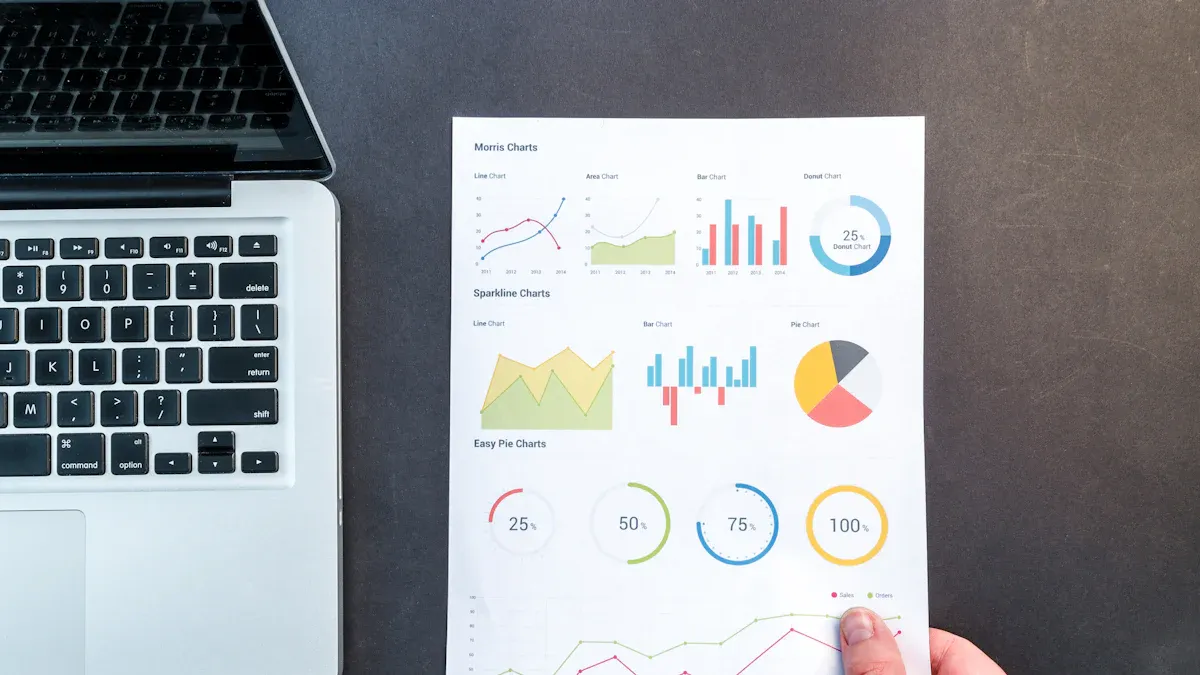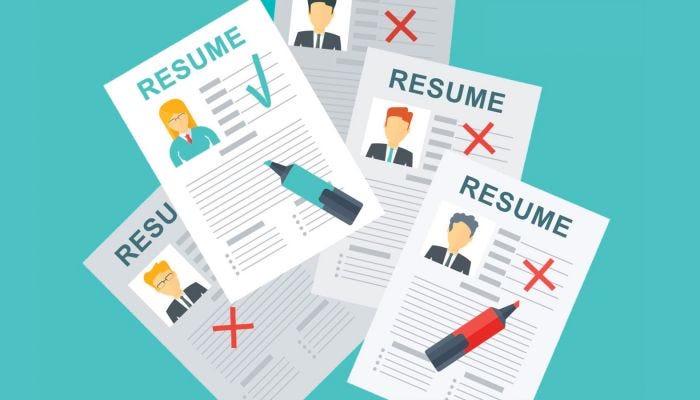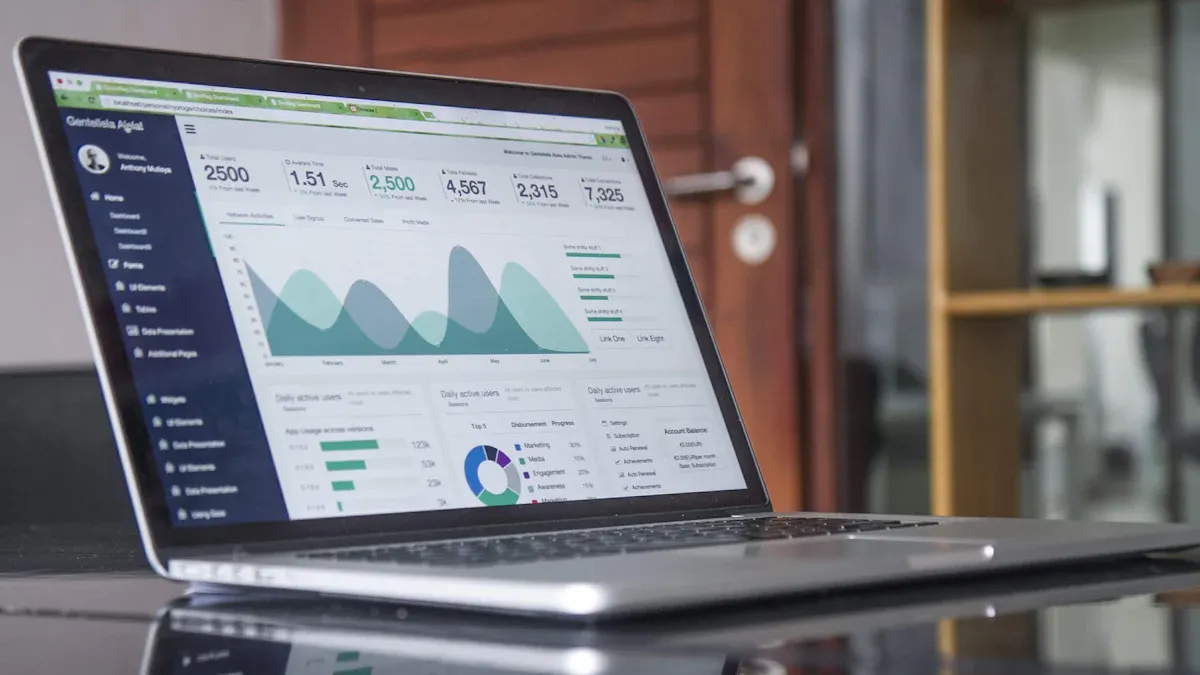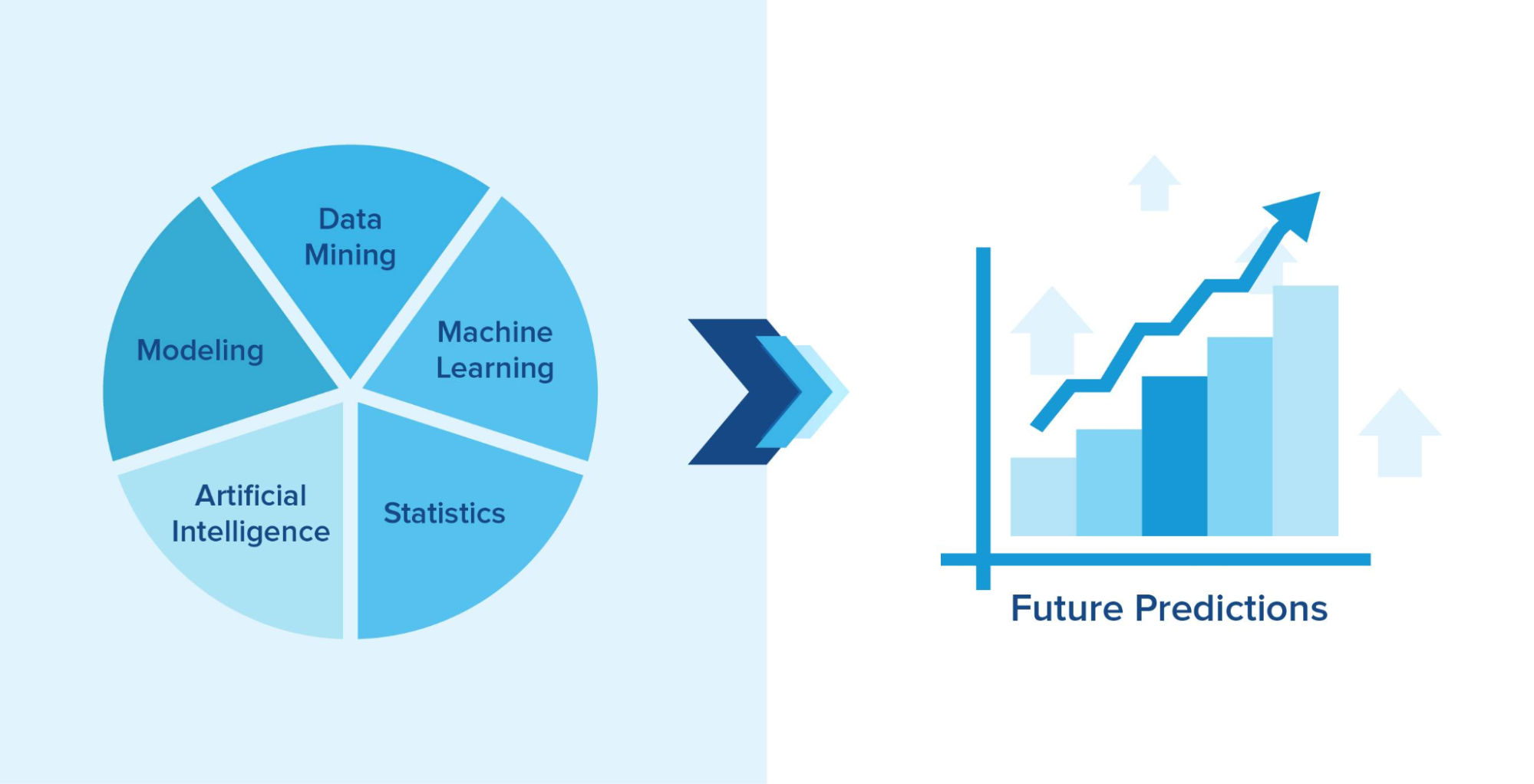AI Resume Screening Revolution: How Smart Algorithms Identify Top Talent 10X Faster

AI Resume Screening Revolution changes how companies find good workers. It helps recruiters pick the best people faster. MokaHR and its AI-powered tool, Moka Eva, show great results in the AI Resume Screening Revolution.
The AI in the resume screening process helps companies find talent fast. It also lowers bias and improves the experience for job seekers. Moka Eva assists with AI-driven screening and shortlisting, allowing hiring teams to find good candidates easily. Companies benefit from more interviews and better hires with AI in recruitment. This demonstrates that the AI Resume Screening Revolution is the future.
The Resume Screening Bottleneck in Modern Recruiting

Recruiter Overload
Recruiters have a lot of work when many people apply for jobs. More resumes come in, but not all are good. Recruiters spend hours looking at resumes that do not fit the job. This makes hiring slow and finding good workers hard.
Resume screening is slow and not always the same.
It is hard to set up interviews.
Talking to candidates is sometimes not good.
Bias can affect who gets picked.
Looking at too many resumes makes recruiters tired.
Each job gets a lot of resumes to check.
Some resumes are not honest.
When there are many jobs to fill, recruiters feel more stress. They might care more about how many people they hire than how good they are. Sometimes, they miss the best people because there are too many resumes. This slows down hiring and makes it less effective.
Inefficiency of Manual Processes
Looking at resumes by hand takes a long time and can cause mistakes. Recruiters must read every resume and see if the person fits the job. This can take up to 23 hours for one job. Typing in data by hand also leads to mistakes, with errors happening 5% to 15% of the time. These mistakes can mean missing good workers or hiring the wrong ones.
HR teams wait longer to hire because manual screening is slow.
Recruiters have trouble finding the best people fast because resumes look different.
Manual screening can take 23 hours for one job, but resume parsing software does it in minutes.
Companies using resume parsing software work 75-85% faster.
Typing in data by hand causes many mistakes, but parsing software cuts errors by 40%.
Resume parsing software pulls out the same info every time, so there are fewer mistakes.
How AI Algorithms Transform Resume Screening
Natural Language Processing (NLP) and Machine Learning in Recruiting
AI changes how companies look for new workers. Recruiters used to read every resume by themselves. This took a long time and made hiring slow. Now, AI-powered resume screening uses NLP and ML to help. NLP lets computers read resumes and job descriptions. It finds skills and experience that matter. ML learns from old hiring data. It guesses which people fit the job best. NLP and ML work together to help recruiters do better. AI does more than just search for words. It understands what people can do and matches them to jobs.
AI-powered resume screening saves recruiters a lot of time. It can check thousands of resumes in just minutes. Recruiters can spend more time talking to top candidates. Companies using Moka Eva hire people 63% faster. The average is only 40%. This shows AI makes hiring quicker and more correct.
Advanced AI uses scoring algorithms. These look at skills, experience, and even cultural fit. The system gets smarter by learning from feedback. This means matching gets better over time.
Skill-Based and Contextual Candidate Matching
Old resume screening uses keyword searches. This can miss good people who use different words. AI uses skill-based and contextual matching. It understands what words mean. It looks at the whole resume, not just keywords.
AI-powered resume screening uses models like LLMs and BERT. These models read resumes and job descriptions. They find skills, experience, and context. This helps recruiters find the best people for busy jobs and special roles.
Aspect | Traditional Methods | Skill-Based & Contextual Algorithms |
|---|---|---|
Approach | Keyword matching | Semantic understanding and contextual relevance |
Technology | Bag-of-Words, SVM, Random Forest | LLMs, BERT, RAG |
Understanding of Context | Lacks semantic understanding | Captures semantic relationships and context |
Error Rate | High due to reliance on exact keywords | Reduced through contextual reasoning and inference |
Adaptability | Limited to structured data | Dynamic assessment with zero-shot and few-shot learning |
AI sorts candidates by skills, location, and experience. It watches for new skills and job changes. The system can reach out when someone fits a new job. This makes finding talent smarter and easier.
AI-powered resume screening helps lower bias. It can hide names, gender, and ethnicity on resumes. It asks everyone the same interview questions. This makes hiring more fair and clear.
Practical Steps for Adopting AI Resume Screening
Companies can follow easy steps to use AI for resume screening. They should choose the right vendor and teach their staff. They need to keep records and check for fairness. Regular checks help stop unfair treatment. Companies should make sure AI works with their HR tools. Data privacy matters. Teams need help and training when switching to AI.
Category | Practical Steps |
|---|---|
Legal and Compliance | - Keep records to stop unfair treatment of protected groups. |
- Do regular checks to watch for problems in different groups. | |
- Make sure candidates can ask about how screening works. | |
Technical and Operational | - Keep data safe and get permission to use it. |
- Test if AI works with current HR systems. | |
- Help teams change from manual to AI screening. | |
Ongoing Management | - Give training and support for a smooth switch. |
- Check screening results often. | |
- Update AI based on hiring results and new needs. | |
Critical Reminder | - Always let people make final hiring choices to help AI. |
Enhancing Candidate Experience with Moka Eva
AI in resume screening makes things better for job seekers. Moka Eva uses a chatbot that speaks many languages. The chatbot answers questions about jobs, timing, and company culture any time. It suggests jobs that match a person’s background and interests. The AI assistant helps recruiters by summarizing resumes and showing important experience. It also makes interview questions that fit each candidate. This makes things easier for recruiters and job seekers.
Moka Eva's chatbot is always ready to answer questions about jobs, timing, and company culture.
The chatbot suggests jobs that match each person’s background and interests.
The AI assistant makes resume screening easier by summarizing resumes, showing key experience, and making special interview questions so recruiters can focus on the best people.
AI-powered resume screening is more than just using computers. It makes hiring faster, fairer, and better. Recruiters spend less time on boring work. They can look for the best people. Companies hire better workers and make smarter choices. The ai resume screening revolution helps everyone find the right talent.
Speed and Accuracy Advantages of AI Resume Screening

Screening Thousands of Resumes in Minutes
AI makes resume screening much faster. Human recruiters can only check 50 to 100 resumes each day. AI systems can look at thousands of resumes every minute. This lets companies hire many people quickly. Recruiters do not have to spend hours on each resume. AI reads, sorts, and scores resumes very fast. Teams find top talent sooner and with better results.
AI also helps recruiters be more accurate. The system checks every resume for skills, experience, and education. It matches people to jobs using smart tools. This lowers mistakes and helps companies pick the right people. AI makes sure good talent is not missed.
Benchmark: 10X Faster Resume Processing
The ai resume screening revolution makes hiring much quicker. AI can do in minutes what used to take days. For example, AI can screen 1,000 resumes in just a few minutes. Human recruiters need several days to do the same thing. AI can also set up interviews and answer questions right away. This saves a lot of time during hiring.
AI helps companies hire more people at once. It keeps the process fair and the same for everyone. Recruiters can spend more time talking to candidates. This makes hiring easier and helps companies find better workers.
Improving Quality of Hire Through AI Screening
Identifying Hidden Talent and Transferable Skills
AI resume screening helps recruiters find hidden talent. Some people have skills that do not match their job titles. AI scans resumes in databases and new applications. These tools look for skills and qualifications that fit job listings. AI understands the meaning behind each skill and experience. Recruiters can find transferable skills that manual screening misses.
AI tools are good at finding skills, not just keywords.
AI looks at resumes in context and finds promising candidates.
AI can handle lots of resumes, saving time and making better shortlists.
Evidence Type | Description |
|---|---|
Scoring and ranking | AI gives scores to candidates based on job needs. This helps recruiters find top candidates fast. |
Filtering and shortlisting | Candidates who do not meet key criteria are filtered out. Only the best fit are reviewed. |
Reduction of unconscious bias | AI can help remove human bias by using data instead of personal judgment. |
Minimizing Unconscious Bias in Candidate Evaluation
AI resume screening helps lower unconscious bias in hiring. Old ways of hiring use personal judgment, which can hurt diversity. AI uses data to focus on skills and experience.
Brett Martin, Co-Founder of Fonzi AI, said, “AI is less biased than humans. If you see bias in AI, you can fix it fast. It is harder to fix bias in people.”
Research from the American Psychological Association shows manual hiring has more bias. Good AI tools can solve this problem. The National Bureau of Economic Research says data quality and fairness matter in AI recruitment.
AI uses the same rules for all resumes.
Recruiters can check many candidates quickly.
AI screening helps make workplaces more diverse and improves hires.
The ai resume screening revolution helps companies hire fairly, quickly, and accurately.
Beyond Screening:Predictive Hiring Insights

Predicting Candidate Success and Cultural Fit
AI in resume screening does more than match skills now. These systems use data to guess who will do well and fit in at work. Recruiters see more than just job history. They get a full view of each person.
AI assessments measure skills and qualifications in a fair way. This helps recruiters hire faster and make better choices.
Old data shows what traits and actions lead to success in some jobs.
Psychometric testing and behavioral data show personality and past actions. These help guess how someone will do in the future.
AI can find learning agility, which predicts long-term success better than past wins. Many new hires do not last because they cannot take feedback. Workers who share company values stay at their jobs longer.
Methodology | Description |
|---|---|
Machine Learning Algorithms | Look at hiring data to find patterns like teamwork and adaptability. |
Natural Language Processing | Check how people communicate to see if they fit in. |
Predictive Analytics | Use old data to guess results based on how workers act. |
Personality Tests | Measure things like emotional intelligence and teamwork to see if someone fits in. |
Continuous Learning and Algorithm Improvement
AI resume screening tools keep learning and changing. They get better with every new piece of data. Machine learning algorithms look at old hiring results and change how they work. This helps recruiters find good candidates with less work.
Mechanism | Description |
|---|---|
Learning from Data | Algorithms study lots of resumes and hiring results to find what works. |
Predictive Analytics | Models use old choices to make shortlisting faster. |
Adaptive Scoring Systems | Scores update as new data comes in, keeping ratings fresh. |
Continuous Learning | Tools look at feedback and results to make better guesses. |
Improved Accuracy | Deep learning cuts mistakes in reading and matching, so picks are more correct. |
Dynamic Updating | Knowledge graphs change with new info, showing what jobs need now. |
AI resume screening keeps getting smarter, helping companies make better hiring choices every day.
AI resume screening helps companies hire faster and more fairly. It makes picking people more accurate. MokaHR and Moka Eva show big improvements. They reach 95% parsing accuracy and screen resumes 80% faster. Organizations should try ai solutions first. They need to watch results and keep people in charge. Checking ai systems often helps them stay fair and work well.
Metric | Value |
|---|---|
Resume Parsing Accuracy | 95% |
Screening Speed | 80% faster |
Relevant Candidates Identified | 20% more |
Recruitment Cost Reduction | Up to 70% |
FAQ
How does Moka Eva improve our hiring efficiency?
Moka Eva is the AI engine behind Moka ATS, designed to optimize every stage of the recruitment process. It helps companies significantly shorten time-to-hire while ensuring quality and consistency in hiring decisions.
What is AI resume screening?
AI resume screening uses smart computer programs to look at resumes. These programs help recruiters find the best people fast and with fewer mistakes.
How does Moka Eva improve hiring speed?
Moka Eva checks and sorts resumes in just a few minutes. Recruiters can see the best candidates right away. This helps companies hire people 63% faster than before.
Does AI resume screening reduce hiring bias?
Yes. AI screening hides things like names and gender. It looks at skills and work experience only. This helps companies make fair choices when hiring.
See Also
Transforming Talent Acquisition Through Online AI Recruitment Systems
Harnessing AI Recruitment Tools for Accurate Candidate Predictions
Strategies for Recognizing Top Talent with ATS Solutions
From recruiting candidates to onboarding new team members, MokaHR gives your company everything you need to be great at hiring.
Subscribe for more information

